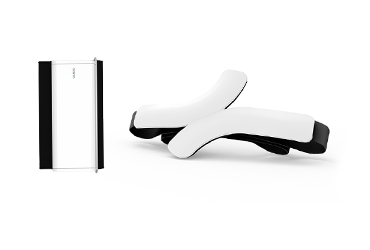Atrial fibrillation is one of the most common heart problems in adults over 60. It’s a type of arrhythmia that, if undetected and unmonitored, can lead to stroke or other cardiac complications. We asked cardiologists to share their advice on living with atrial fibrillation and what you can do to prevent atrial fibrillation and reduce risk of potential heart health problems.
If you don’t know what atrial fibrillation is you can read all you need to know about atrial fibrillation here.
 Control your blood pressure
Control your blood pressure
Although the exact cause of Afib is unknown, it has been shown that people with high blood pressure are more likely to develop atrial fibrillation that those who maintain normal blood pressure levels.
Ravi Kishore Amancharla MD, FACC and senior consultant cardiologist and electrophysiologist at Health City Cayman Islands advises patients to control their blood pressure to prevent atrial fibrillation. This can be done by enriching your diet with foods with high levels of potassium, fiber and magnesium. By eating more fruits and vegetables, fish, fat free yogurt, sweet potatoes, oatmeal and beans, you can achieve a better heart health naturally.
 Manage your stress
Manage your stress
Stress is correlated with blood pressure, as elevated stress levels for prolonged periods of time can lead to pre-hypertension and progress to chronic high blood pressure if not treated successfully. Atrial fibrillation can be triggered by variety of activities such as mental stress, exercise, exertion and stimulants including coffee, alcohol or tobacco, all which stress the adrenal glands to pump out adrenaline. The direct application of adrenalin on an electrically sensitive area of the heart can then trigger atrial fibrillation.
Pay attention to your magnesium level
Magnesium is one of the most important supplements for your heart to function properly. In fact, heart has more magnesium that any other organ in the body. It plays a vital role the heart’s electrical functioning and magnesium deficiencies have been linked to many cardiovascular conditions, atrial fibrillation being one of them. If you have afib, changes are you are low on magnesium!
Dr. Dean MD, ND, a medical advisory board member at Nutritional Magnesium Association finds measuring magnesium levels periodically very important. It can be done by using a special ionized magnesium test which establishes accurate levels of magnesium in the cells. She also points out that all forms of magnesium are not easily absorbed by the body and suggests magnesium citrate powder as a highly absorbable form that can be mixed with hot or cold water and sipped throughout the day.
As almost 80% of the population is estimated to be magnesium-deficient, paying attention to your daily intake can make all the difference when it comes to looking after your heart health.
 Introduce small changes to your lifestyle to get big results
Introduce small changes to your lifestyle to get big results
There are simple changes that can make a big difference to your overall health and incorporating them into your daily life can turn life-saving move. Improve your activity levels by gradually increasing exercise, limit alcohol intake to one serving per day or less while increasing water consumption, stop smoking and keep an eye on your weight. All these improvements are directly linked to your heart health and affect your risk of developing atrial fibrillation.
Know your heart health
One of the key steps in preventative healthcare is knowing your own health. To prevent atrial fibrillation and other heart disease, it is important to know your numbers and measure your heart health vitals regularly. Qardio smart health devices make it easy to measure your blood pressure, weight and continuous ECG so any changes in your heart rate regularities or levels can be spotted early on. Qardio health devices fit into your daily lifestyle so you can take care of your health the smart way. Use QardioArm, our smart blood pressure monitor, to measure your blood pressure and keep an eye on your irregular heartbeat, which can prove an early indication of a developing arrhythmia. QardioCore wireless ECG monitor measures and records more than 20 million heart health data and can track medical grade ECG/EKG, heart rate variability, activity levels, respiratory rate and many other heart health metrics so you and your doctor can care for your heart anytime, anywhere.
Sources:
Ravi Kishore Amancharla MD, FACC, Senior Consultant Cardiologist and Electrophysiologist at Health City Cayman Islands
Carolyn Dean, MD, ND, Medical Advisory Board Member, Nutritional Magnesium Association




